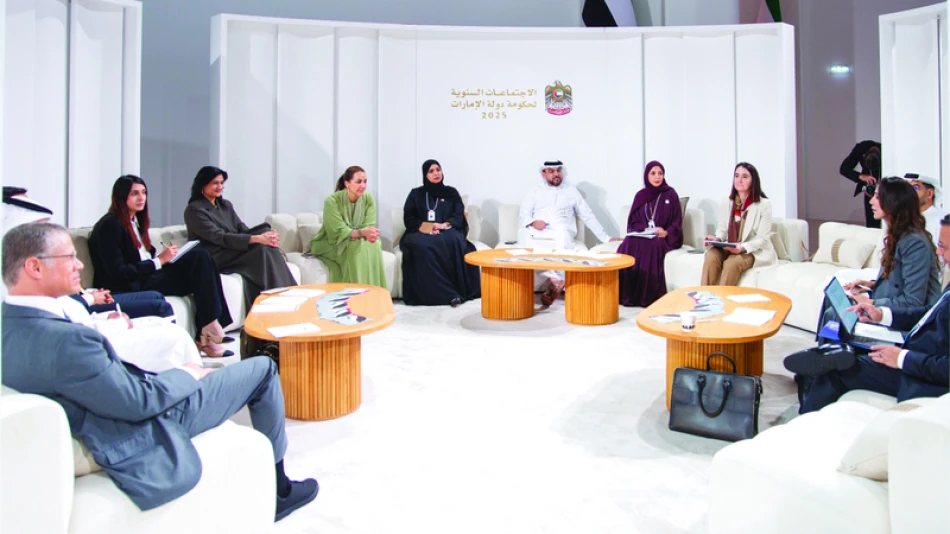
UAE Unveils Strategic Roadmap to Boost Competitiveness in Key Economic Sectors
The UAE launched its first-ever formal dialogue between government and private sector leaders during the 2025 Annual Government Meetings. This marks a significant shift in how the country approaches economic planning, bringing together ministers, diplomats, and CEOs to create joint solutions for sustainable development and align efforts toward the UAE Vision 2031.
The dialogue represents a strategic national approach to connect private sector expertise, innovation, and networks with the UAE government's enabling environment and world-class infrastructure. This direct interaction between government leaders and business executives reflects the country's philosophy of treating the private sector as a strategic partner in policy-making.
Badr Jafar, Special Envoy to the Foreign Minister for Business and Philanthropy Affairs and CEO of Crescent Enterprises, said organizing this dialogue for the first time gives it strategic importance and momentum. "The UAE has successfully established a strong partnership between government and private sectors under its leadership's vision," he noted. "This dialogue creates a foundation for continuing to develop this partnership and finding new channels to work together on creative solutions."
The sessions produced practical joint recommendations to accelerate growth across various sectors. The direct interaction between both sectors will help align business visions with government incentives and policies to launch ambitious joint initiatives that advance the UAE's future trajectory.
The dialogue focused on four main areas through dedicated sessions. The "Expanding Investments" session examined ways to increase the size and speed of private capital flows toward small and medium enterprises (SMEs) and promising sectors. Despite SMEs representing 95% of companies in the UAE and providing 86% of private sector jobs, they still face limited financing. SME loans reached only 9.5% of total commercial and industrial loans by mid-2024.
The "Trade Growth and Supply Chains" session addressed enhancing non-oil trade, strengthening supply chains, and maximizing benefits from Comprehensive Economic Partnership Agreements (CEPA). Participants discussed the challenge of creating a unified system with seamless standards and reducing barriers from different country standards, testing requirements, and documentation processes.
A session on accelerating future technology adoption explored ways to enhance the path from innovative ideas and prototypes to commercial contracts through private sector-led initiatives. Government policies have focused on raising national productivity through advanced technologies like artificial intelligence and automation.
The "Impact Investments" session examined attracting and directing private capital toward national priorities with social dimensions. Participants emphasized the importance of adopting an integrated and flexible national framework for impactful investment in the UAE.
The dialogue was designed with mechanisms to ensure effective results, develop practical implementable initiatives, and create annual and semi-annual follow-up plans with actual steps to guarantee real-world execution. This approach reinforces the UAE's commitment to enhancing its position as one of the world's most dynamic and competitive business centers.
Through this dialogue, the UAE establishes a unique model for economic policy-making where market visions meet government-provided enabling factors. This creates joint incentives that drive inspiring development toward the future and enhances the country's readiness to achieve qualitative leaps in sustainable development and global leadership.
Most Viewed News

 Sara Khaled
Sara Khaled






